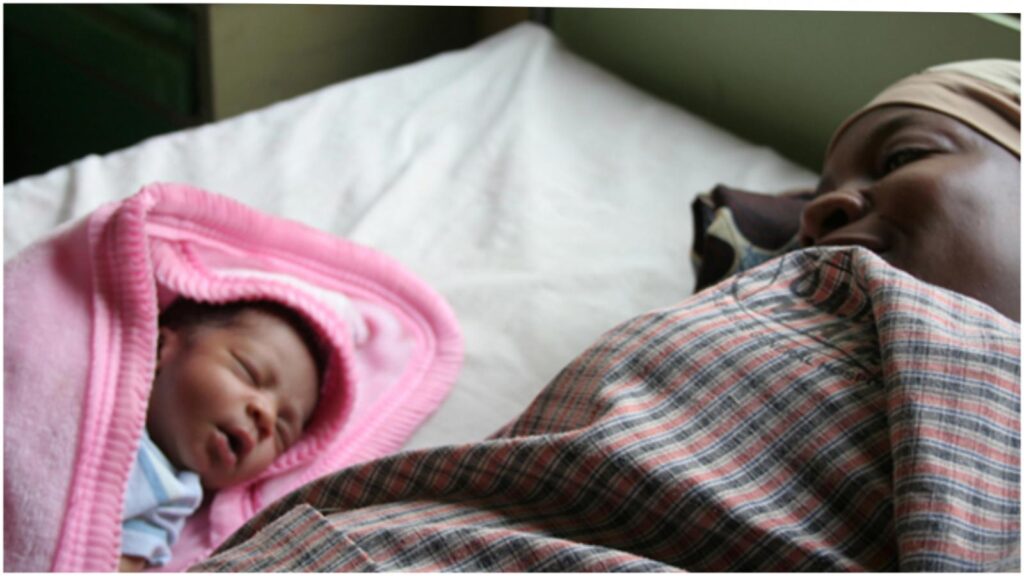
Stakeholders in the health sector have called for the integration of the public and private sectors to reduce maternal mortality, insisting that public-private sector integration can effectively address the issue of maternal mortality in the country.
This call was made during a webinar organised by Nigeria Health Watch and funded by MSD for Mothers, under the theme “Building Resilient Maternal Health Systems through Private Sector Integration”.
Science Nigeria reported that the webinar provided an opportunity for stakeholders to advocate policymakers on the importance of private sector integration in Nigeria’s mixed health systems. It aimed to provide actionable steps to engage the private sector effectively in building resilient and sustainable maternal health systems that deliver quality maternal healthcare services in the country.
The president of the Healthcare Federation of Nigeria (HFN), Dr. Pamela Ajayi stressed that progress can be made when the private and public sectors work together to improve health outcomes in the country. She emphasised the need for investment in the health system, highlighting the importance of alignment and incentives to encourage collaboration. Ajayi also pointed out that the private sector plays a significant role in maternal health in Nigeria, accounting for 60 per cent – 70 per cent of services.
Acting unit head of health systems governance and policy at the World Health Organisation (WHO), Dr. David Clarke acknowledged the global impact of the COVID-19 pandemic on healthcare. He emphasised the need for greater efficiency in healthcare delivery through the integration of public and private health services worldwide. Clarke mentioned that the WHO is making efforts to incorporate the private sector into various health initiatives and that the WHO country connector is working to assist countries in better integrating the private and public sectors for improved health outcomes.
The former commissioner for Health in Kaduna State, Dr. Amina Mohammad Baloni highlighted the state government’s focus on private-sector integration to improve the supply chain of medicines and their accessibility, especially in hard-to-reach areas. She emphasised the importance of quality standards across both the private and public sectors to ensure efficient health delivery for all Nigerians. Baloni also stated that studies have shown that traditional birth attendants (TBAs) do not contribute to reduced maternal mortality and should be trained to provide companionship to pregnant women rather than acting as care providers.
Chief executive officer of the Delta State Contributory Health Commission (DSCHC), Dr. Ben Nkechika emphasised the positive outcomes of collaboration with the private sector during the COVID-19 pandemic. He stressed the need for participatory cooperation among stakeholders to improve the health outcomes of Nigerians. Nkechika cited the Delta State model, which successfully integrated private firms such as the PharmAccess Foundation to provide a resilient health system for citizens. He highlighted the importance of stakeholder engagement and the implementation of beneficial concepts based on their responses.
Global advocacy director of MSD for Mothers, Mr. Temitayo Erogbogbo discussed the initiative’s objective to reduce maternal mortality rates in low-income countries with high statistics. He emphasised the lack of attention given to the quality of care and outcomes, emphasising the urgent need for change. Erogbogbo stressed that the country was losing lives due to poor quality and limited access to care, and integrating the private sector was crucial for financing health systems and improving health outcomes.
The managing director of Nigeria Health Watch, Mrs. Vivianne Ihekweazu addressed the challenges in strengthening maternal health in the country. She noted that Nigeria accounts for a quarter of global maternal deaths, highlighting the urgency to promote maternal health outcomes and achieve SDG 3.1. Ihekweazu stressed the significant role of the private sector in maternal healthcare, with over 60 per cent of services being provided by the private sector in Nigeria.
Programme manager at Nigeria Health Watch, Mrs. Bunmi Oyebanji Obot explained that the webinar aimed to provide practical insights into opportunities, best practices, benefits, and the importance of public and private sector engagement. The goal was to identify areas for policy development, foster private-sector integration, and establish frameworks for action. Obot emphasised that public-private sector integration can be a powerful strategy to reduce maternal mortality in the country. By leveraging their respective strengths and resources, the public and private sectors can improve maternal health outcomes and ensure access to quality maternal healthcare services for all women.
Nigeria currently has the second-highest maternal mortality rate globally, with approximately 58,000 women dying each year during pregnancy or childbirth. This alarming statistic necessitates greater attention and action from both the public and private sectors.

